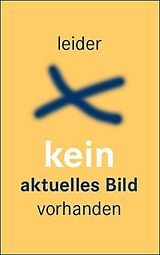XML Topic Maps
Einband:
Kartonierter Einband
EAN:
9780201749601
Untertitel:
Creating and Using Topic Maps for the Web
Genre:
Netzwerke
Autor:
Jack Park, Sam Hunting
Herausgeber:
Pearson Academic
Anzahl Seiten:
605
Erscheinungsdatum:
01.10.2002
ISBN:
978-0-201-74960-1
XML Topic Maps (XTM) represent a powerful new tool for transforming the Web from a vast, chaotic sea of data into a highly usable information resource. XML Topic Maps is the first comprehensive, authoritative guide to this new technology. Edited by Jack Park, a leader of the XTM community, with contributions from leading members of the community, it covers every aspect of XML Topic Map creation and usage. Drawing on the XTM 1.0 standard, a complete XML grammar for interchanging Web-based Topic Maps, this book shows how XML Topic Maps can be utilized as an enabling technology for the new "Semantic Web," in which information is given well-defined meaning, making it possible for computers and people to cooperate more effectively than ever before. Coverage includes: creating, using, and extending XML Topic Maps; ontological engineering; and the use of XML Topic Maps to create next-generation knowledge representation systems and search tools. Park shows how to use Topic Maps to visualize data; how Topic Maps relate to RDF and semantic networks; and finally, how Topic Maps presage a profound paradigm shift in the way information is represented, shared, and learned on the Internet -- and everywhere else . For every Web designer, developer, and content specialist concerned with delivering and sharing information in more useful and meaningful forms.
Autorentext
Jack Park is a founding member of the XTM Topic Maps in XML authoring group. He was a senior scientist with VerticalNet Solutions in Palo Alto, CA, where he was actively engaged in the development of knowledge representation systems in support of online B2B communities. His discovery program entitled The Scholar's Companion(R) has been used to develop knowledge bases in advanced research on hyperbaric immunology. He is the lead developer of an XML Topic Maps-based knowledge management system on the Web at http://nexist.sourceforge.net, and is active in the development of Open Hyperdocument Systems technology with the Bootstrap Alliance.Sam Hunting is the principal of eTopicality, Inc., a consultancy whose service offerings include topic maps, content analysis, and DTD development. He was a founding member of TopicMaps.Org, which developed the XML Topic Maps (XTM) specification. He is a coauthor of the XTM 1.0 DTD and a cofounder of the GooseWorks project for creating open source topic map tools. He can be reached at http://www.etopicality.com.
0201749602AB08282002
Klappentext
The explosive growth of the World Wide Web is fueling the need for a new generation of technologies for managing information flow, data, and knowledge. This developer's overview and how-to book provides a complete introduction and application guide to the world of topic maps, a powerful new means of navigating the World Wide Web's vast sea of information.With contributed chapters written by today's leading topic map experts, XML Topic Maps is designed to be a "living document" for managing information across the Web's interconnected resources. The book begins with a broad introduction and a tutorial on topic maps and XTM technology. The focus then shifts to strategies for creating and deploying the technology. Throughout, the latest theoretical perspectives are offered, alongside discussions of the challenges developers will face as the Web continues to evolve. Looking forward, the book's concluding chapters provide a road map to the future of topic map technology and the Semantic Web in general. Specific subjects explored in detail include:Topic mapping and the XTM specification Using XML Topic Maps to build knowledge repositories Knowledge Representation, ontological engineering, and topic maps Transforming an XTM document into a Web page Creating enterprise Web sites with topic maps and XSLT Open source topic map software XTM, RDF, and topic maps Semantic networks and knowledge organization Using topic maps in education Topic maps, pedagogy, and future perspectivesFeaturing the latest perspectives from today's leading topic map experts, XML Topic Maps provides the tools, techniques, and resources necessary to plot the changing course of information management across the World Wide Web.
0201749602B08282002
Inhalt
Foreword.
Preface.
Acknowledgments.
Contributors.
1. Let There Be Light, Jack Park.
Opening Salvo.Resources.Topic Maps: General.Topic Map Software: Commercial.Topic Map Software: Open Source.What's in Here?Historical and Background Chapters.Technical Chapters.Forward-Thinking Chapters.
2. Introduction to the Topic Maps Paradigm, Michel Biezunski.
Managing Complex Knowledge Networks.Primary Constructs.Topics.Associations.Names.Scopes and Namespaces.Rules for Merging Topic Maps.The Big Picture: Merging Information and Knowledge.A Step Toward Improved Interconnectivity.Design Principles for XTM.Simplicity.Neutrality.From ISO/IEC 13250 to XTM.Summary.Acknowledgments.
3. A Perspective on the Quest for Global Knowledge Interchange, Steven R. Newcomb.
Information Is Interesting Stuff.Information and Structure Are Inseparable.Formal Languages Are Easier to Compute Than Natural Languages.Generic Markup Makes Natural Languages More Formal.A Brief History of the Topic Maps Paradigm.Data and Metadata: The Resource-Centric View.Metametadata, Metametametadata . . ..Subjects and Data: The Subject-Centric View.Understanding Sophisticated Markup Vocabularies.The Topic Maps Attitude.Summary.
4. The Rise and Rise of Topic Maps, Sam Hunting.
Milestones in Standards and Specifications.XTM 1.0 versus ISO 13250.OASIS.Current ISO Activities.Milestones in Software.The Future of Topic Maps.The State of the Paradigm.The Near Future.
5. Topic Maps from Representation to Identity: Conversation, Names, and Published Subject Indicators, Bernard Vatant.
What Is the Conversation About?A Finger Pointing at a Planet.So What about Published Subject Indicators?PSIs Are Binding Points for Subject Identity.PSIs Have to Meet High Quality Requirements.PSIs Are Good for Pragmatic Bottom-up Tasks.PSIs Cannot Pretend to Universality nor Strong Symbolic Signification.Back to the Conversation Subject.Addendum: A Note on the Figures.
6. How to Start Topic Mapping Right Away with the XTM Specification, Sam Hunting.
XTM Topic Mapping.Why Topic Maps?Appetizer.Introducing , , , , and .Introducing .Introducing .Main Course.Introducing , , and .Introducing .Dessert.Brandy, Cigars.Introducing , , and .Introducing .Paying the Bill and Putting on Your C…

Leider konnten wir für diesen Artikel keine Preise ermitteln ...
billigbuch.ch sucht jetzt für Sie die besten Angebote ...
Die aktuellen Verkaufspreise von 6 Onlineshops werden in Realtime abgefragt.
Sie können das gewünschte Produkt anschliessend direkt beim Anbieter Ihrer Wahl bestellen.
Loading...
Die aktuellen Verkaufspreise von 6 Onlineshops werden in Realtime abgefragt.
Sie können das gewünschte Produkt anschliessend direkt beim Anbieter Ihrer Wahl bestellen.
| # | Onlineshop | Preis CHF | Versand CHF | Total CHF | ||
|---|---|---|---|---|---|---|
| 1 | Seller | 0.00 | 0.00 | 0.00 |
